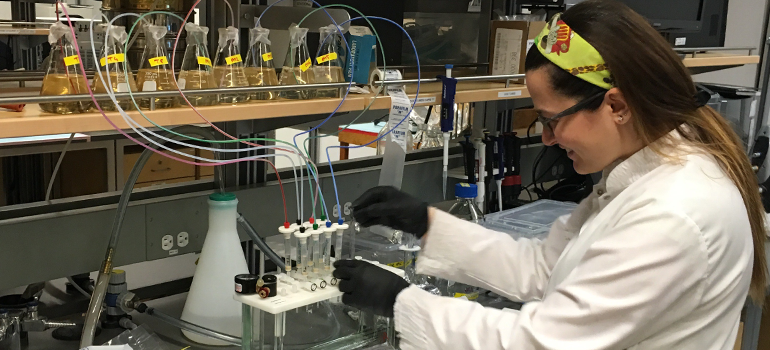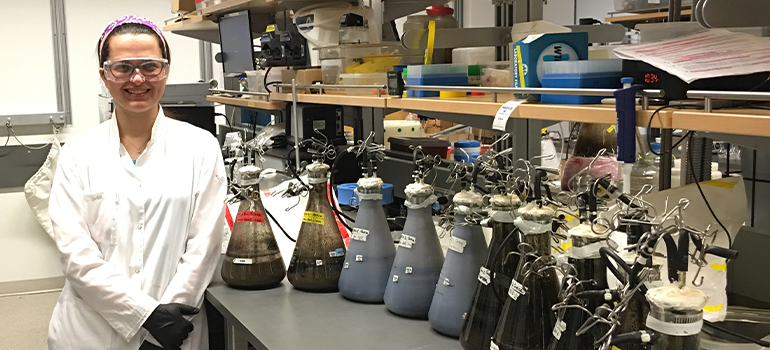Using microwave pre-treatment combined with anaerobic digestion on wastewater by-products, researchers at UBC Okanagan’s Bioreactor Technology Group are aiming to effectively remove micro-pollutants (antimicrobial triclosan) commonly found in soaps and disinfectants that end up in wastewater treatment plants.

Visiting International Research Student, Gökçe Kor Bıçakcı, along with UBC PhD candidate Tim Abbott conducted the research. Bıçakcı is a PhD candidate at Istanbul Technical University (ITU) Environmental Engineering Department and co-supervised by Cigdem Eskicioglu, an associate professor with UBC Okanagan’s School of Engineering and Dr. Emine Çokgör of ITU. “The work that our researchers have completed isn’t solely focused on removing the pollutants,” says Eskicioglu, “it also looks at ways to harness the by-products of the process to recover enhanced energy and cleaner fertilizer from waste sludge in smaller, more compact digesters.”
The research has been recognized by the German Water Partnership (GWP), a German-Turkish collaboration that includes private and public organizations in the water sector. In making the announcement, the GWP states that the research will provide “a concrete solution to a challenge in the operation and optimization of water and wastewater treatment plants and their infrastructure within the next 5 years.”
“We’re fortunate to have wonderful partnerships with other international institutions that allow us to share our expertise, our people and our resources; and make a global impact” explains Eskicioglu.

Bıçakcı, Abbott and Eskicioglu continue to collaborate on additional papers generated from their results.
The research was conducted with municipal sludge obtained from Westside Regional Treatment Plant by the Regional District of Central Okanagan.